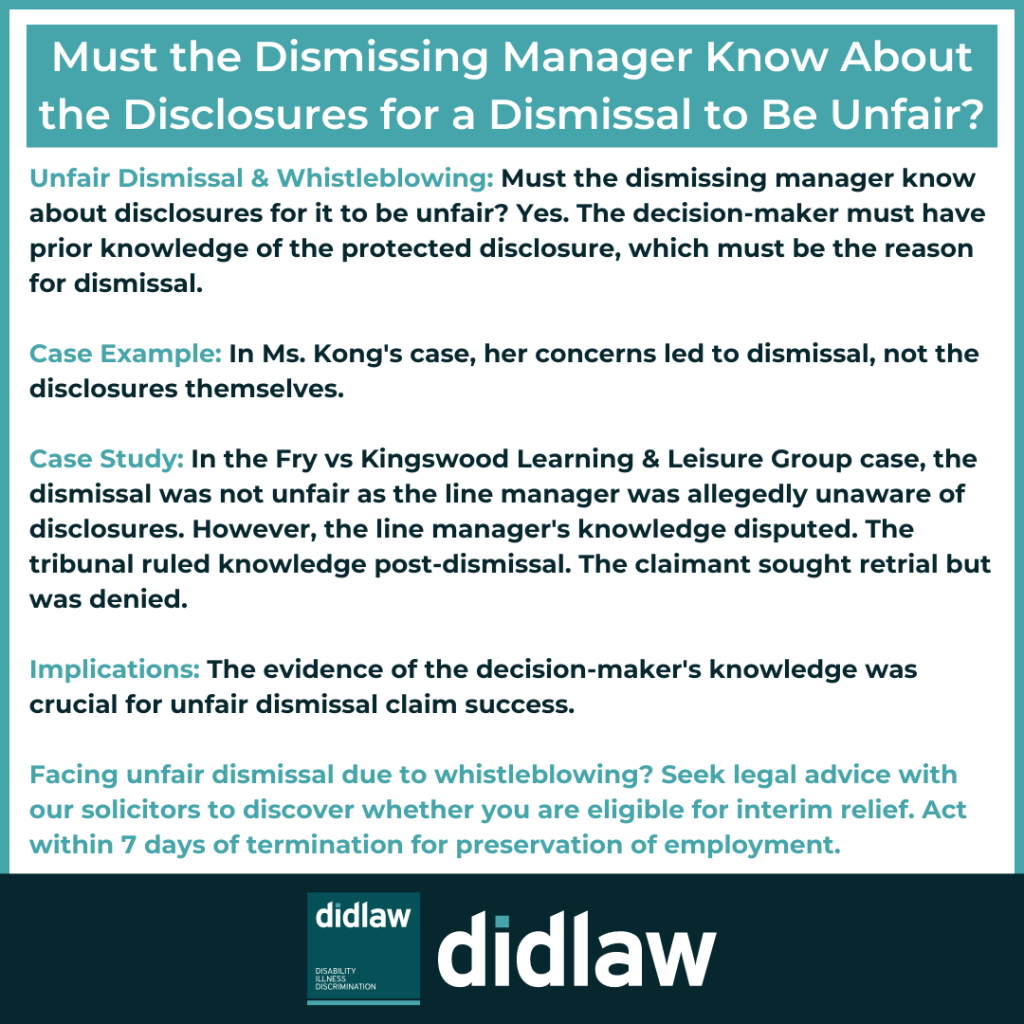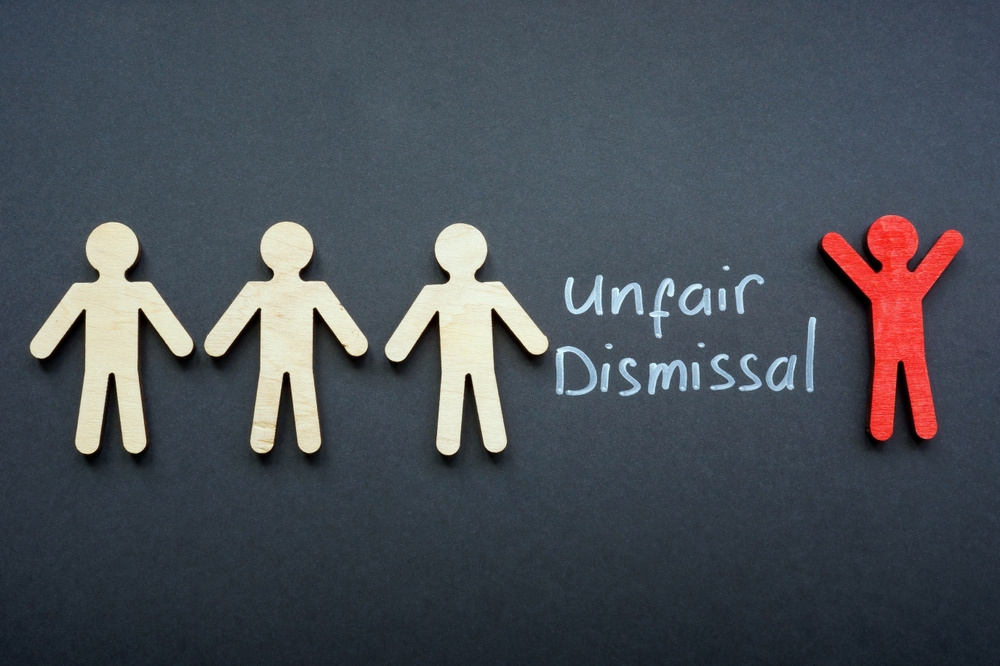
Must the dismissing manager know about the disclosures for a dismissal to be unfair?
The short answer is yes. To succeed in a claim for automatic unfair dismissal as a result of making a protected disclosure (whistleblowing), an employee needs to show that the person who made the decision to terminate their employment had prior knowledge of the protected disclosure. The whistleblowing has to be the material reason why that person dismissed the employee.
I represented Ms Kong where the Court of Appeal held that the Claimant had not been automatically unfairly dismissed because, they said, it was her conduct in raising her concerns, rather than the protected disclosures themselves, that had led to the breakdown in the employment relationship and her dismissal.
In Fry v Kingswood Learning & Leisure Group Ltd, the Employment Appeal Tribunal considered a slightly different aspect. Was the tribunal entitled to find that the dismissing manager did not know the Claimant had made a protected disclosure when he gave inconsistent evidence about the date he found out about the whistleblowing?
Ms Fry was made redundant by the Respondent at the start of the Covid-19 pandemic. At the date of her dismissal, she did not have two years’ qualifying service so could not bring a claim for unfair dismissal. She argued that her dismissal was because of two protected disclosures she had made to a higher manager regarding her line manager’s conduct – that he had touched a female colleague at a work event and that he had made an inappropriate remark to a female colleague about her attending a Zoom call in her dressing gown. The Respondent accepted that these were protected disclosures but said that the line manager did not have knowledge of these disclosures when he dismissed her. It could not be a reason as to why she had been dismissed and her claim for automatic unfair dismissal failed.
The line manager gave inconsistent evidence about when he knew about the protected disclosures. One date was before the dismissal, four other dates were afterwards. The tribunal concluded that the line manager became aware of the protected disclosures after she had been dismissed, when she filed a grievance. The tribunal only explained its rationale as to the date it found the line manager to have had knowledge of the disclosures and not why it had discounted the other dates. The Claimant argued that the judgment was perverse and hoped it would be remitted for a retrial.
The EAT disagreed and said that the tribunal had been entitled to only give reasons why it had decided on one date being the date of knowledge. As a result, the original tribunal judgment was upheld.
What does this decision mean? Well, it is not enough to say that the employer had knowledge before the decision to dismiss was made to be able to succeed in this claim. A tribunal needs evidence to show that whoever made the decision to terminate had knowledge of the protected disclosure(s) and that was the motivating reason for their decision to dismiss.
Automatic unfair dismissal claims are not straightforward, there are many hurdles to overcome. If you have a claim, then I recommend you get legal advice, not least because this is a claim where you can apply for interim relief, i.e., if the tribunal finds that you may be able to show that you were dismissed for making a protected disclosure they will preserve the employment relationship, at least so far as pay is concerned until the tribunal has decided the claim at a full hearing. An application for interim relief must be made within seven days of the effective date of termination so acting quickly is key.
For interest the Kong judgment can be found here.
This blog was written by Anita Vadgama, Partner at didlaw.
